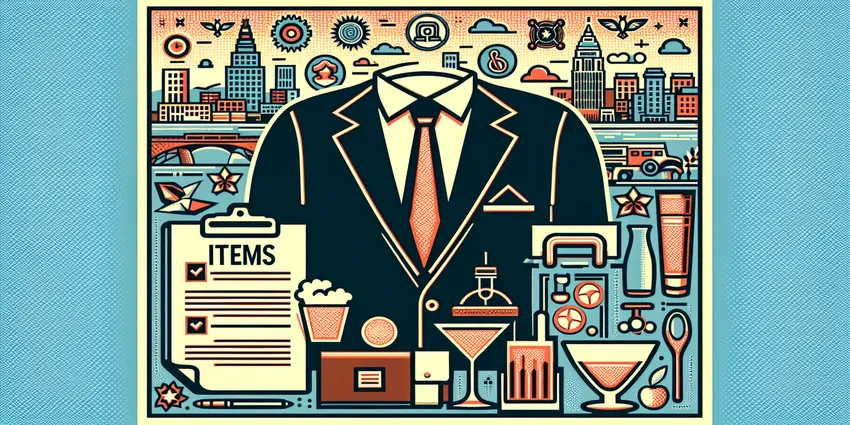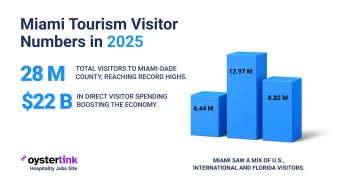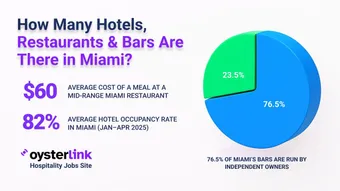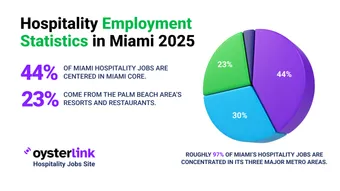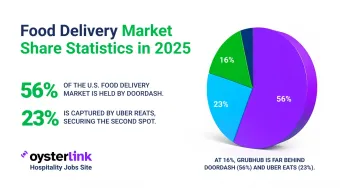Checklist: What to Bring to a Bartender Interview - Key Takeaways
- Bring essential documents like an updated resume, references, certifications, and valid ID to verify your qualifications and identity.
- Consider assembling a portfolio with cocktail recipes, photos demonstrating skills, and testimonials to stand out.
- Your attire should match the establishment's atmosphere, ranging from formal suits to smart casual with polished footwear.
Preparing thoroughly for a bartender interview means bringing the right items and presenting yourself professionally.
This guide covers the must-have documents, portfolio ideas, and dressing tips to help you succeed.
1. Documents to Bring to a Bartender Interview
Having the correct documentation is crucial during your bartender interview. Employers rely on these papers to verify your experience, skills, and legal eligibility.
Resume: Prepare an updated resume that highlights your bartending background, such as previous venues worked at, bartending-specific skills like mixology or customer service, and any achievements. For detailed guidance, see our bartender resume tips.
Make sure to emphasize certifications relevant to alcohol service and safety.
References: Bring a list of professional references who can vouch for your work ethic and bartending capabilities. Include names, phone numbers, and email addresses of former managers or colleagues.
Certifications: If you have completed programs like Responsible Beverage Service (RBS), ServSafe Alcohol Certification, or any recognized mixology courses, carry copies of these certificates. They demonstrate your commitment to safe and knowledgeable alcohol service. Learn more about gaining expertise as a mixologist.
Identification: As bartenders must be of legal drinking age, a valid government-issued ID such as a driver's license or passport is necessary to confirm your eligibility.
2. Creating a Bartender Portfolio for Your Interview
While not mandatory, a professional portfolio can give you a competitive edge and showcase your expertise.
Cocktail Recipes
Compile a collection of signature cocktails you have created or perfected. Include variations on classics and your own twists, demonstrating mixology knowledge.
Enhance your mixology skills with our guide on how to create a signature cocktail.
Photos
Visual proof of your skills can be impactful. Include photos that highlight your drink presentations, event setups, or your bartending in action.
Testimonials
If possible, add positive feedback from past employers, colleagues, or customers that affirm your reliability, personality, and bartending talents.
This portfolio reflects your passion and professionalism, which many employers appreciate.
3. Appropriate Attire for a Bartender Interview
First impressions count significantly. Dressing appropriately conveys respect for the employer and seriousness about the role.
Formal Venues
For upscale bars, restaurants, or hotels, opt for professional attire such as a suit and tie or a blazer paired with dress pants. Ensure your clothes are clean, pressed, and fit well.
Check out our perfect bartender outfit guide for interview attire ideas.
Casual Settings
In more relaxed environments like pubs or casual bars, you can lean toward smart casual. Choose a well-fitted button-down shirt with neat jeans or chinos.
Footwear
Regardless of venue, pick polished, comfortable shoes as bartending demands standing for long hours.
Discover the best shoes for bartenders to stay comfortable and stylish.
Grooming
Maintain neat grooming: tidy hair, minimal and tasteful accessories, and clean nails. Presentation impacts how you’re perceived.
4. Final Preparation Tips for Your Bartender Interview
Beyond bringing the right materials and dressing well, prepare to engage confidently during the interview. Research the venue’s style and clientele to tailor your answers.
Practice common bartender interview questions and be ready to discuss your customer service philosophy and how you handle challenging situations.
Arrive early to allow time for check-in and composure. Being punctual reinforces professionalism.
Brush up with our bartender interview tips to maximize your chances of success.
5. Useful Resources for Aspiring Bartenders
To sharpen your knowledge and credentials before the interview and beyond, explore these resources:
- U.S. Department of Labor – Occupational Outlook for Bartenders offers insights about the job outlook and skills needed.
- ServSafe Alcohol Certification program provides training and certification in responsible alcohol service.
- National Restaurant Association – Bartender Training offers educational materials to improve bartending skills.
Also, review bartender career overview and job description at bartender job description to understand employer expectations.
Checklist: What to Bring to a Bartender Interview - Conclusion
Preparing carefully for your bartender interview makes a positive impression and indicates professionalism.
Bring all necessary documents like your resume, references, certifications, and ID. Consider creating a portfolio to showcase your skills and practice dressing according to the venue's standards.
Combining these preparation steps with a confident, friendly attitude sets you on the path to landing the bartender role you want.
For employers, discovering effective strategies on how to hire a bartender can improve your hiring success and customer satisfaction.
